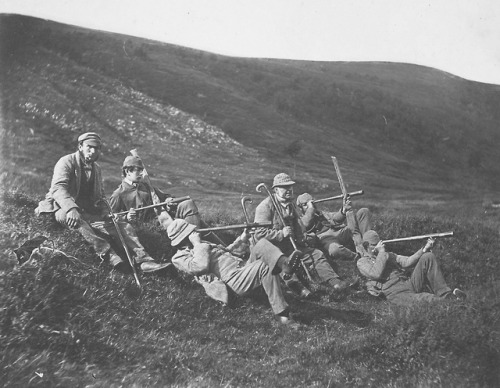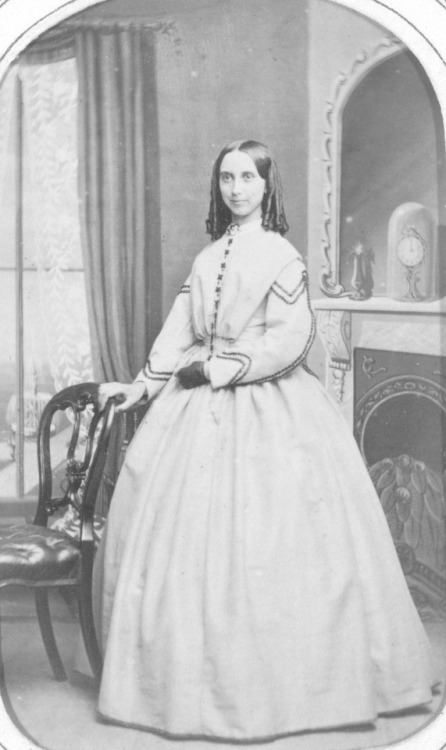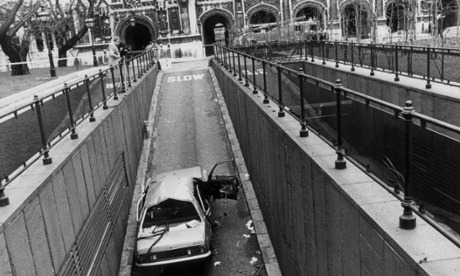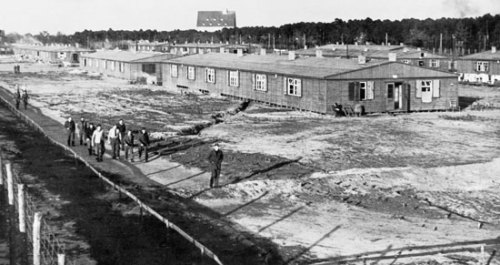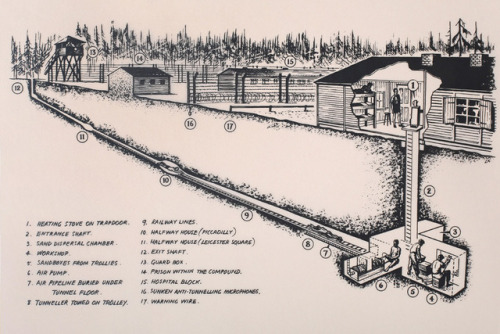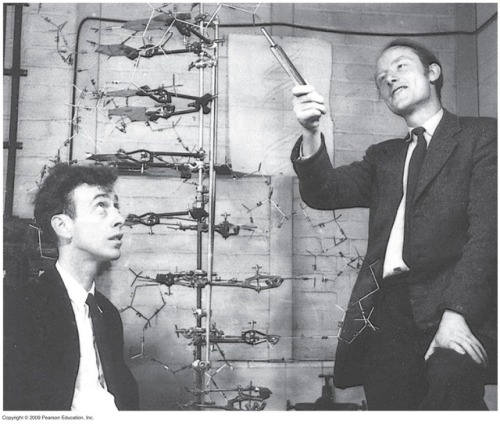#uk history
“Battle of Bailleul. Men of the Middlesex Regiment holding a street barricade in Bailleul, 15 April 1918, just before the fall of the town.“ Taken by photographer John Warwick Brooke.
Source: Imperial War Museum.
Post link
Carte de visite portrait of Louisa Edwardes by French photographer Camille Silvy, c. 1861.
Source: The J. Paul Getty Museum.
Post link
Portrait of a group of deer hunters posing on a hillside in Glenfeshie, Scotland, c. 1858. Taken by Scottish photographer Horatio Ross.
Source: Metropolitan Museum of Art.
Post link
Carte de visite portrait of Jane Kettle by photographer J.W. Gilmor of Colchester, England, July 1864.
Source: Rijksmuseum.
Post link
Portrait of an unidentified soldier by Welsh photographer Calvert Richard Jones, c. 1845-1850.
Source: Metropolitan Museum of Art.
Post link
Daguerreotype portrait of British abolitionist and Member of Parliament George Thompson taken by photographer Richard Beard, c. 1841.
Source: Boston Public Library.
Post link
A collection of mugshots of serious criminal offenders including a number of American Civil War veterans who were incarcerated at Mountjoy Prison in Dublin, Ireland, taken in November 1866.
Source: New York Public Library.
April 2nd 1982: Argentina invades the Falkland Islands
On this day in 1982, Argentine forces landed on the Falkland Islands and occupied the area, which marked the beginning of the Falklands War. The war was the product of long tensions over who possessed the islands, with Argentina claiming ownership and Britain seeing the islands as British territory. Argentine forces landed on the islands and fought the British Royal Marines at Government House, leading to British surrender and thus Argentina seizing control of the Falklands. British Prime Minister Margaret Thatcher responded by sending a naval task force to attack the Argentinians. The conflict killed 649 Argentinians, 255 Britons and three Falkland Islanders, even though it only lasted 74 days. The war ended with Argentine surrender on 14th June, thus returning the islands to Britain.
Post link
March 30th 1979: Airey Neave killed
On this day in 1979, the Shadow Secretary for Northern Ireland Airey Neave was assassinated by a car bomb aged 63. Neave was elected as a Conservative Member of Parliament for Abingdon in 1953, and in the mid 1970s helped lead the effort to install Margaret Thatcher as party leader. At the time of Neave’s death, the Conservatives were the opposition party to the Labour government of James Callaghan but the Conservatives were poised to win the upcoming election, which would have elevated Neave to the cabinet. Neave was known for his tough, anti-IRA policies, which invoked the ire of republican paramilitary groups in Northern Ireland. As the politician was leaving the House of Commons car park, a bomb attached to his car exploded, and he subsequently died from his injuries. The noise from the explosion could be heard in the Commons, which led to a suspension of proceedings as MPs rushed to the windows to see what had happened. The Irish National Liberation Army claimed responsibility for the murder. The incident occurred at the height of the Troubles, which saw conflict in Northern Ireland over the country’s relationship to Britain.
Post link
March 25th 1811: Shelley expelled from Oxford
On this day in 1811, Percy Bysshe Shelley was expelled from the University of Oxford for publishing a pamphlet entitled ‘The Necessity of Atheism’. Shelley is best known as a famous English poet, who was part of a group of fellow prominent writers including his wife Mary Shelley and Lord Byron. As well as being as being an author, Shelley was a radical political activist who advocated non-violent protest. Having begun study at Oxford in 1810, it is often said that he only attended one lecture during his time there. He published several works whilst at university, but it was his atheistic pamphlet which led to his appearance before the College fellows and his eventual expulsion as he refused to deny authorship. ‘The Necessity of Atheism’ argued that people do not choose their beliefs and thus atheists shouldn’t be persecuted. However it is unclear whether Shelley was personally an atheist; he may have instead been an agnostic or a pantheist. Either way, this document is an interesting insight into Shelley’s views and shows how atheism was stigmatised in the early nineteenth century.
“Truth has always been found to promote the best interests of mankind. Every reflecting mind must allow that there is no proof of the existence of a Deity”
Post link
March 24th 1944: The ‘Great Escape’
On this day in 1944, a group of Allied prisoners of war staged a daring escape attempt from the German prisoner of war camp at Stalag Luft III. This camp, located in what is now Poland, held captured Allied pilots mostly from Britain and the United States. In 1943, an Escape Committee under the leadership of Squadron Leader Roger Bushell of the RAF, supervised prisoners surreptitiously digging three 30 foot tunnels out of the camp, which they nicknamed ‘Tom’, ‘Dick’ and ‘Harry’. The tunnels led to woods beyond the camp and were remarkably sophisticated - lined with wood, and equipped with rudimentary ventilation and electric lighting. The successful construction of the tunnels was particularly impressive as the Stalag Luft III camp was designed to make it extremely difficult to tunnel out as the barracks were raised and the area had a sandy subsoil. ‘Tom’ was discovered by the Germans in September 1943, and ‘Dick’ was abandoned to be used as a dirt depository, leaving ‘Harry’ as the prisoners’ only hope. By the time of the escape, American prisoners who had assisted in tunneling had been relocated to a different compound, making the escapeees mostly British and Commonwealth citizens. 200 airmen had planned to make their escape through the ‘Harry’ tunnel, but on the night of March 24th 1944, only 76 managed to escape the camp before they were discovered by the guards. However, only three of the escapees - Norwegians Per Bergsland and Jens Müller and Dutchman Bram van der Stok - found their freedom. The remaining 73 were recaptured, and 50 of them, including Bushell, were executed by the Gestapo on Adolf Hitler’s orders, while the rest were sent to other camps. While the escape was generally a failure, it helped boost morale among prisoners of war, and has become enshrined in popular memory due to its fictionalised depiction in the 1963 film The Great Escape.
“Three bloody deep, bloody long tunnels will be dug – Tom, Dick, and Harry. One will succeed!”
- Roger Bushell
Post link
March 22nd 1963: ‘Please Please Me’ released
On this day in 1963, the first album by the Beatles, ‘Please Please Me’, was released in the UK by Parlophone Records. The Beatles formed in Liverpool, and made their musical start by performing concerts in Liverpool’s Cavern Club and playing in Hamburg, Germany. The first singles from their debut album, ‘Love Me Do’ and ‘Please Please Me’ had been very successful, with the latter topping the charts in the United Kingdom. The success of their debut album was followed up with their second UK album ‘With the Beatles’ in November 1963. The Beatles went on to become one of the most famous music groups of their day, and its members - John Lennon, Paul McCartney, George Harrison and Ringo Starr - became international icons. The band’s influence continued long after their break up in 1970 and endures to this day.
Post link
March 11th 1864: The Great Sheffield Flood
On this day in 1864, the Dale Dyke Dam in Sheffield broke, causing one of the largest floods in English history. 650 million gallons of water swept down Loxley Valley and through areas of Sheffield. The flood destroyed 800 homes and killed around 293 people, thus making it the largest man-made disaster to befall England, and one of the deadliest floods in history. Individual stories from the disaster are particularly tragic. For example, Joseph Dawson found the currents too strong and was unable to save both his wife and two day old baby boy - the Dawsons’ unnamed child became the first victim of the floods. The destruction afterwards led one observer to remark that Sheffield was “looking like a battlefield.” While this tragedy is often forgotten in English history, many Sheffielders take this day to remember what once happened to their city.
Post link
February 28th 1953: Watson and Crick discover DNA structure
On this day in 1953, scientists James D. Watson and Francis Crick discovered the chemical structure of DNA. They made the discovery of the double helix structure while building a cardboard model of the molecule in their laboratory at Cambridge University. Their model of DNA was based on an X-ray diffraction image taken by Rosalind Franklin and the fact that DNA bases are paired; due to her gender, Franklin is often forgotten in narratives of scientific history. Watson and Crick first announced their discovery to friends and it was not formally announced to the wider scientific community until April 25th. Watson, Crick and Maurice Wilkins were jointly awarded the 1962 Nobel Prize for Physiology or Medicine for their discoveries. The discovery was a groundbreaking moment for science, and lay the foundations for the research into DNA and the investigation of human genetics.
“We have found the secret of life.”
-Francis Crick
Post link



